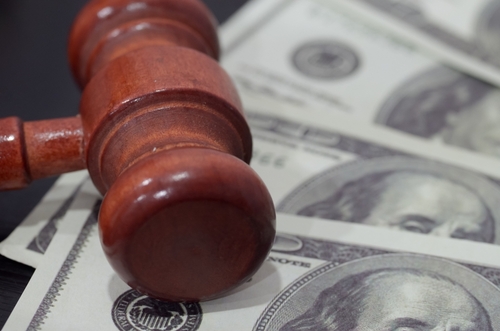Infra
Toronto Mayor Olivia Chow hopes for ‘dialogue’ with Doug Ford on bike lanes
A cyclist on Harbord Street, Sept. 20, 2023. Ontario Premier Doug Ford told Global News he would pull out bike lanes on Bloor Street, University Avenue and Yonge Street – without waiting for any data.Sarah Palmer/The Globe and Mail
Toronto Mayor Olivia Chow says she hopes to have discussions with Ontario Premier Doug Ford before he makes good on his recent vow to order the removal of bike lanes on key routes in her city, as he seeks to appease drivers facing traffic congestion.
In an interview with The Globe and Mail, the mayor also said she met weeks ago with businesses along the route of contentious year-old bike lanes on Bloor Street West in Mr. Ford’s political stronghold of Etobicoke, and had already asked city transportation planners to come up with a redesign that would keep the bike lanes but swap out a landscaped median for additional lanes for cars.
Proponents of bike lanes argue their effect on car traffic is marginal and that they both save lives and encourage more commuters to take up a greener mode of transportation. And Ms. Chow, well-known for decades of pro-cycling advocacy and for touring city streets in her flower-festooned bicycle, is facing pressure from the city’s bike activists to meet the Premier’s sudden attack on bike lanes with a show of defiance.
She did fire back against the idea on social media, saying the Premier should focus on getting the long-delayed Eglinton Crosstown light-rail transit line open to help with traffic congestion. But the mayor also said she hopes to work with Mr. Ford, who often speaks warmly of her and with whom she signed a landmark deal on the city’s finances last year.
“I think dialogue is always better,” Ms. Chow told The Globe on Friday, arguing that she could find ways to keep bike lanes in place while addressing concerns from the Premier and other critics.
However, she said she would not accept the arbitrary removal of bike lanes: “Let’s just look at the data and give it a little bit of time. When we install, maybe the installation of these, we could improve. Maybe the process, we can do better.”
The Premier, who called bike lanes “nasty and terrible” in the legislature last week, has so far shown little interest in dialogue. His Transportation Minister, Prabmeet Sarkaria, tabled a bill last Monday that would require municipalities to seek permission for future bike lanes that reduce lanes for cars. The bill would also require municipalities to provide data on all bike lanes installed in the last five years – appearing to put much of Toronto’s recently installed cycling infrastructure in a crosshairs.
And in public comments since, Mr. Ford told Global News he would pull out bike lanes on Bloor Street, University Avenue and Yonge Street – without waiting for any data.
The stance is nothing new for Mr. Ford. A dozen years ago, while he was a Toronto city councillor during the scandal-ridden term his late brother, Rob, served as mayor, the pair led the successful charge to scrap bike lanes on Jarvis Street, a main north-south artery in central Toronto. The Premier has said that he and his brother supported bike lanes but only on side streets.
Mr. Ford’s recent focus on soothing Toronto’s fuming drivers – a push that includes a vague promise to dig a Highway 401 tunnel that could cost as much as $60-billion to $120-billion – has further fuelled speculation that he will call an early election next year.
Ms. Chow made a point of noting that the Etobicoke bike lanes at issue were largely designed and approved before she was elected mayor in last year’s by-election after the resignation of John Tory. She said she got an earful about them and their effects on car traffic from locals attending the Taste of the Kingsway festival in early September and had arranged meetings with concerned businesses and city transportation staff before Mr. Ford’s bill was unveiled.
On these and the city’s other bike lanes, she said she hoped more data could be collected for the province by next spring or summer, when there are more cyclists, and that decisions could be made then. She also warned that removing bike lanes would be expensive – and that the construction would add to congestion.
Mr. Sarkaria announced his bike-lane bill at a pub on Bloor Street West called the Crooked Cue. Owner Sam Pappas is among the local business leaders fighting against the bike lanes there, and who say they have squeezed car traffic into one lane in each direction on this stretch of Bloor. He said he felt other city officials had ignored him, but that in a recent meeting, Ms. Chow listened.
“The mayor? I’ll give it to her. I had her here. She’s a pragmatist. She’s smart. And she knows it doesn’t work here. She wants to work with us,” Mr. Pappas said in an interview when the province announced its plan.
“But I think it’s only because the provincial government was holding the hammer that she even entertained it.”
Meanwhile, cycling advocates are worried that even long-established lanes across the city could be next.
The general manager of the Bloor Annex Business Improvement Area, Brian Burchell, says the lanes in his area of Bloor Street West near Spadina Avenue, installed in 2016, have actually been good for local businesses, attracting more customers on two wheels.
“I can’t speak for other jurisdictions. But for my own, bike lanes have been a huge boon,” Mr. Burchell said.
Hundreds of cyclists turned up at Queen’s Park for a rally last week, riding en masse on nearby streets. Among them was Michael Longfield, the executive director of the lobby group, Cycle Toronto. He urged the mayor to use the city’s “full legal and moral weight” to resist.
“From our perspective, there’s no compromise here,” he said. “There’s no metre or kilometre of bike lane that we’ll accept being removed as part of this.”









